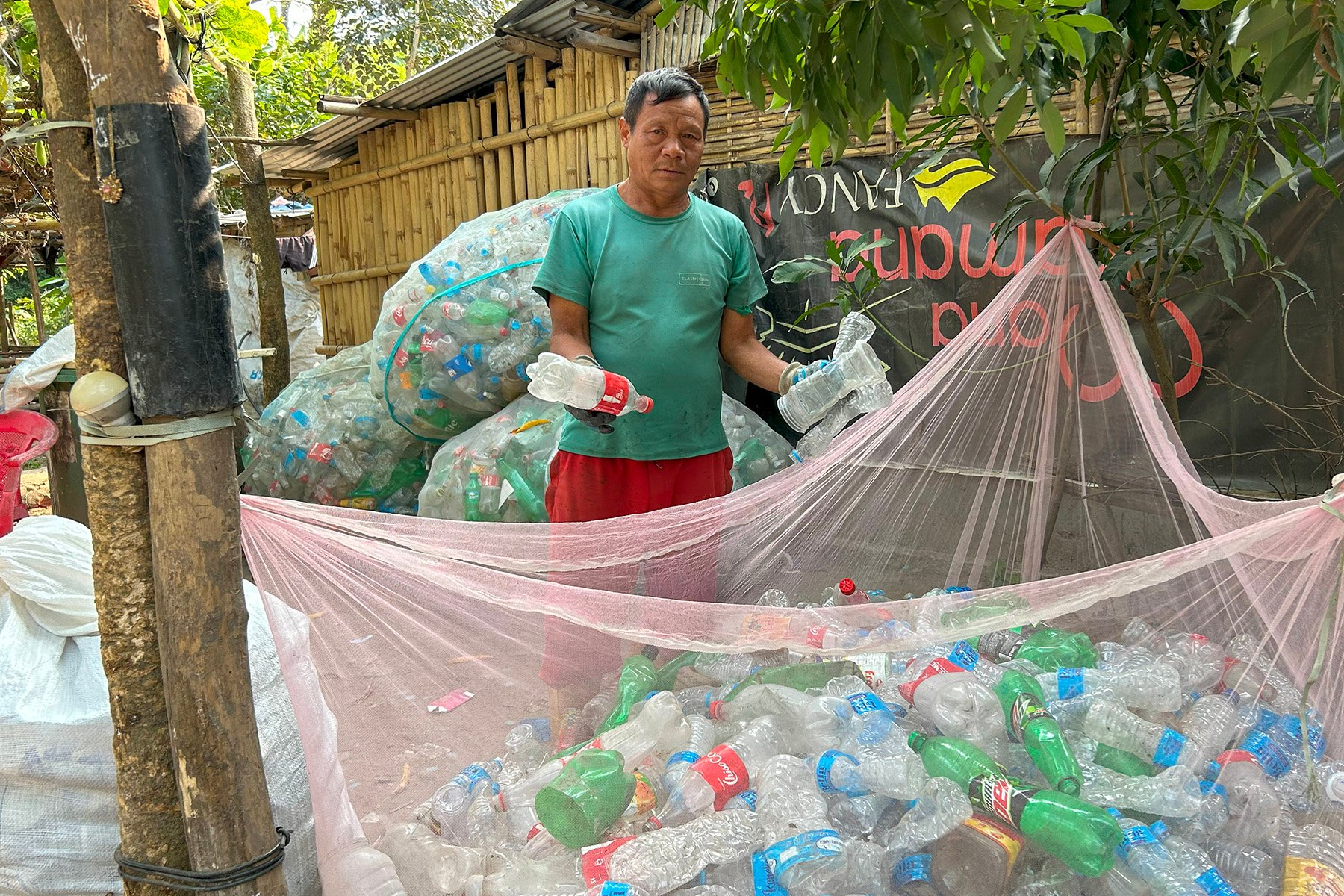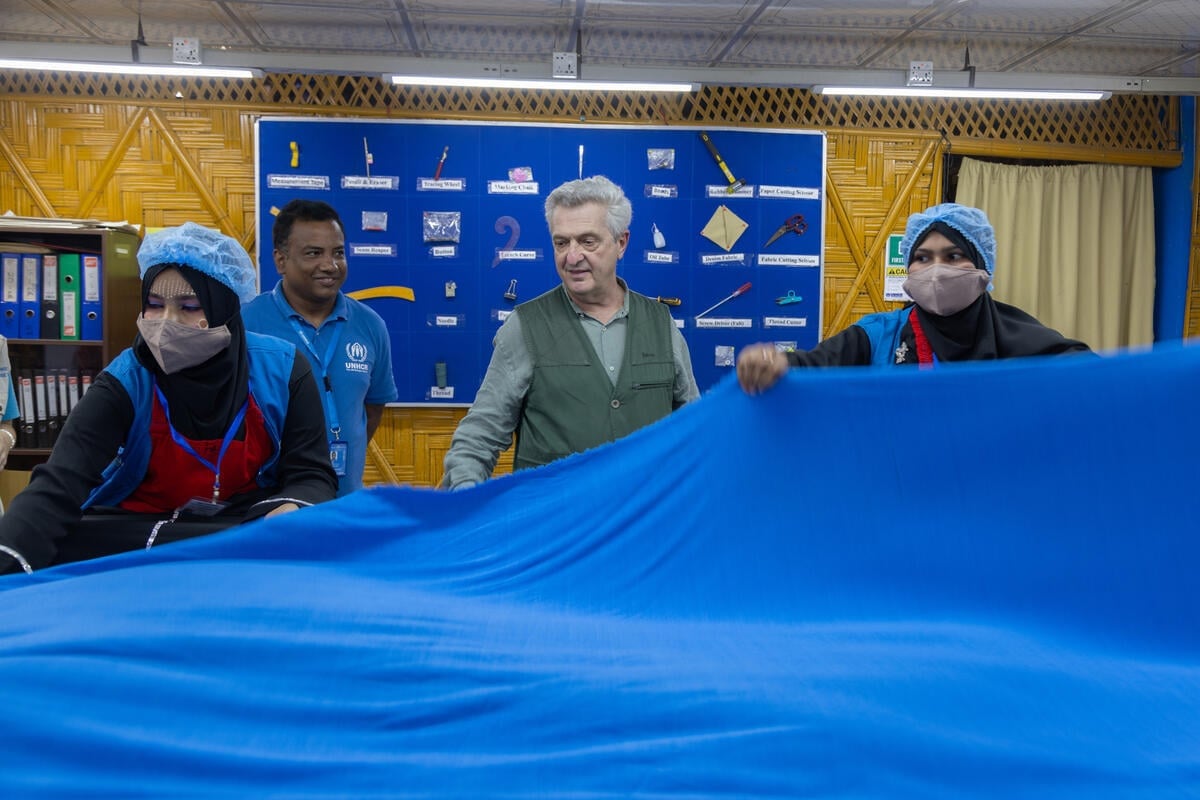A Call for Compassion: Afghan Refugees in Pakistan and the Path to Hope
A Call for Compassion: Afghan Refugees in Pakistan and the Path to Hope
For nearly five decades, millions of Afghans have come and gone from Pakistan, fleeing waves of violence since 1979 and returning home under mixed circumstances over the years. Some have chosen to repatriate voluntarily, while others have felt compelled to do so.
Recent Government announcements about departure deadlines have again shaken the Afghan community in Pakistan. Last week, I visited an Afghan family who had sought refuge here in 2022 after fleeing Afghanistan in a hurry, leaving behind everything they knew in search of peace and safety. It was heartbreaking to see how fearful they were to be forced to go back. Their hopes and dreams have been shattered.
Since the beginning of the year, I have been hearing from more and more Afghan refugees. Admirable young women and men, many highly skilled. They’ve been told that they must leave the temporary homes they’ve found in Pakistan. And the uncertainty they’re facing is overwhelming. What future does a young, widowed mother have in Afghanistan? And what about her daughters? There are no easy answers, not even for the country asking them to go home.
The weight of hospitality
Pakistan hosts 1.52 million registered Afghan refugees and asylum-seekers, an estimated 800,000 Afghan citizenship holders, along with others living in the country without official recognition. They come from a variety of backgrounds, but all have fled Afghanistan's turbulent political landscape.
Regardless of when they arrived, they share a common story of hardship and survival. Over time, Afghan refugees have become woven into the fabric of Pakistan’s society, contributing to the local economy, culture, and even the workforce. Many have found work in agriculture, construction, and small businesses, they have forged business partnerships and are contributing to Pakistan’s thriving urban centres. Some have intermarried with their Pakistani hosts. Despite their contributions to Pakistan, Afghans often face discrimination, limited access to formal employment, and a lack of legal rights that makes their lives insecure and pushes many to the fringes of society.
Pakistan’s continued support for Afghan refugees is admirable, but undeniably a challenge for the host state. Healthcare, education, and other public services are often overburdened, and host communities are feeling the strain. Pakistan is stuck in a tough spot – balancing the needs of its own people, dealing with a growing security challenge, and shouldering the financial impact of hosting refugees. At the same time, the world expects Pakistan to keep delivering. The international community needs to keep stepping up and acknowledge that this stability comes at a cost, and that the responsibility must be shared.
The latest directives from the government represent a significant disruption to the fabric of many communities. Dislocation from communities that have welcomed them and a possible forced return to Afghanistan, when there has been little chance for planning on how to rebuild their lives there, are unlikely to be sustainable.
Solutions that work for everyone
The situation requires a multifaceted approach. Firstly, Pakistan and Afghanistan must work together to make sure that Afghan refugees can voluntarily and safely return home. Forced returns don’t do anyone any favours, and aren’t sustainable: many of those pushed to return in 2023 are back in Pakistan again.
Sustainable return means creating a peaceful and secure environment in Afghanistan, so refugees don’t have to fear persecution or discrimination when they go back. Afghanistan’s recovery must be supported, particularly in areas like education, healthcare, and jobs, so that refugees – especially women and girls – can reintegrate without facing even more challenges.
For Afghans who cannot return safely for the moment, efforts must be made in Pakistan to expand access to education, healthcare, and employment opportunities, while also granting them legal recognition and protection under international refugee law. Investing in host areas not only improves the quality of life for refugees but also reduces tensions between them and host communities. The World Bank, through its IDA 18 Refugee Hosting Window financing tool, is already supporting the provincial governments in Khyber Pakhtunkhwa and Balochistan, who host the biggest number of Afghan refugees, to improve their health and education systems for everyone. There is potential to tap into more of such financing.
UNHCR has witnessed first-hand how this support creates a win-win situation for communities that have coexisted for decades. In the past 12 months, 145 government facilities have been solarized, among them 100 public schools for girls and boys, while a further 26 schools have been renovated, expanded and improved by UNHCR. Since 2009, more than 4,500 projects in the area of health, education, water, livelihoods, energy and infrastructure, have been implemented across the country, 85 percent of those benefiting from the services are from the Pakistani host community. Some examples include high-tech equipment for Mian Munshi Hospital and Mayo Hospital in Lahore, HMC Hayatabad Medical Complex and Khyber Teaching Hospital in Khyber Pakhtunkhwa, and Sandeman Hospital in Quetta, as well as 85 new dialysis machines for the Sindh Institute of Urology and Transplantation (SIUT) in Karachi.
UNHCR has also supported the people of Pakistan in times of crisis, emptying its warehouses of emergency support during devastating floods, earthquakes and internal displacement. We are eager to continue these programmes which help Afghan refugees and their Pakistani hosts.
The international community has a significant role to play. The responsibility on Pakistan should not be borne alone. Humanitarian aid needs to continue, not just to provide short-term relief but to support long-term development programmes. Promises were made for the relocation of Afghans who entered the country since 2021. While many Afghans have left to third countries, thousands still remain in limbo in Pakistan. UNHCR is calling for their speedy departures, which means a durable solution and stability for the refugees.
As the displacement of Afghans continues, it’s important to remember that refugees are not just statistics or abstract problems – they’re real people. They’re men, women, and children, many born and grown up in Pakistan, who have been through unimaginable hardships and deserve compassion and opportunities like all of us. As the sacred month of Ramadan comes to a close and Eid celebrations begin, it is more important than ever to show solidarity with people in need, be they Pakistani or Afghan.
Pakistan’s long-standing hospitality toward Afghan refugees is something we all commend. But we cannot expect Pakistan to carry this responsibility forever. The solution lies in all of us working together – Afghanistan, Pakistan, and the international community – to create a comprehensive approach that addresses both the immediate and long-term needs of Pakistan, Afghanistan, and of the Afghans themselves. It is time to write a new chapter for Afghan refugees, one that gives them the future they deserve. Only then can we break the cycle of displacement and give them hope for a safer, brighter future.
Eid Mubarak.









